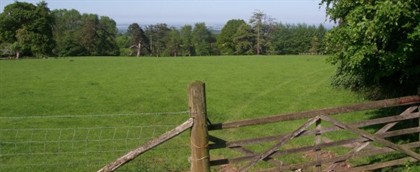Rights Of Way Problems And Remedies
When buying freehold premises or taking on a lease you will need to ensure that you have sufficient rights of way in order to gain access to and from those premises.

"It should not be assumed that your premises adjoin an adopted highway, giving you statutory rights of access, although a local highways search will confirm the publically adopted roads in your area,"
Many premises will require access over private roads, for example estate roads on industrial estates will very often be privately owned, and so you will need to ensure that legal rights of way benefit the premises you are acquiring.
Establishing your rights of access
In order to establish your legal rights, you need to investigate the title to the premises. The title will confirm if any rights have been expressly granted. If the premises are registered at the Land Registry, the rights will be recorded in the register entries. If the property is unregistered it will be recorded in a separate deed, such as a deed of grant or deed of easement, or otherwise contained as rights granted in your lease.
If there are no express rights, or the rights granted are inadequate, the premises may benefit from 'prescriptive rights'. These are rights that have been acquired by previous owners or occupiers of the premises by having unobstructed continuous use of the right(s) for a minimum of 20 years. Such rights can be difficult to establish and as such may involve time-consuming and costly investigations. However, whilst not ideal, it is better to establish prescriptive rights than to have no right of access at all As long as you have proper evidence, usually in the form of statutory declarations from previous owners or users, you can request that these rights are registered.
Changing rights of way
Where premises benefit from rights granted, such as access rights, these rights cannot be unilaterally altered unless the person who originally granted the right, such as your landlord or the freehold owner of the access road, has reserved a right to do so. The right reserved to your landlord would be shown in your lease, registered title or a deed of grant or a deed of easement.
The reservation of the right would allow your landlord to alter the right by giving you notice of the proposed change. A well drafted clause should also state that if this happens, your landlord has to make the alteration at their own cost and the new route chosen should be as convenient to you as the original.
Otherwise, a right granted for your benefit can only be altered by your landlord (or the freehold owner) by obtaining your consent. This would be documented by you both signing a deed of variation of the original right, or a deed of release and re-grant providing for a new right.
If you do not wish to consent to the alteration then, unless the alteration of the existing route can be seen to be 'an object of substantial public and local importance and value', there is nothing your landlord can do to insist on the alteration.
Interference with rights
For interference of a right to be actionable it must be shown that the interference is substantial in nature. The interference does not have to amount to a total destruction of the rights granted to you, but trivial acts will not amount to interference.
For example, if your landlord were to construct a gateway across an access road that you used it could amount to interference. However, each case will be decided on its facts; it may be considered that if the access road is used by you infrequently, an unlocked gate would not be a substantial interference with your right.
Your landlord (or the freehold owner) is not unilaterally entitled to change the right granted to you, unless a right has specifically been reserved to them.
You may be able to obtain an injunction to prevent the alteration, however this may be impossible if, for example, there could be an issue with road safety which necessitates the alteration, but you would not be prevented from being granted other relief.
Other principal remedies for interference include declaratory relief, where the court confirms the existence of the existing right and damages. Each case of interference will be decided upon on its facts and whilst case law is a useful guide ultimately there are no stock answers. You would also need to consider carefully the potential costs of any dispute against the possible benefit.
It is vital that you establish from the outset what rights of access benefit your premises, and whether there is any interference with such rights. You do not want to have completed your purchase or lease only to find out that you cannot in fact get to your premises!
Published: August 2016
Contact us:
For advice, contact a member of our Litigation and Dispute Resolution team on York 01904 716000 or Wetherby 01937 583210.
NB. The contents of this article are for the purposes of general awareness only. They do not purport to constitute legal or professional advice. The law may have changed since this article was published. Readers should not act on the basis of the information included and should take appropriate professional advice upon their own particular circumstances.
"http://www.warekay.co.uk/news-updates/family
Contact us
 York -
01904 716000
York -
01904 716000
 Wetherby - 01937 583210
Wetherby - 01937 583210
 Malton - 01653 692247
Malton - 01653 692247
 Get in touch
Get in touch

